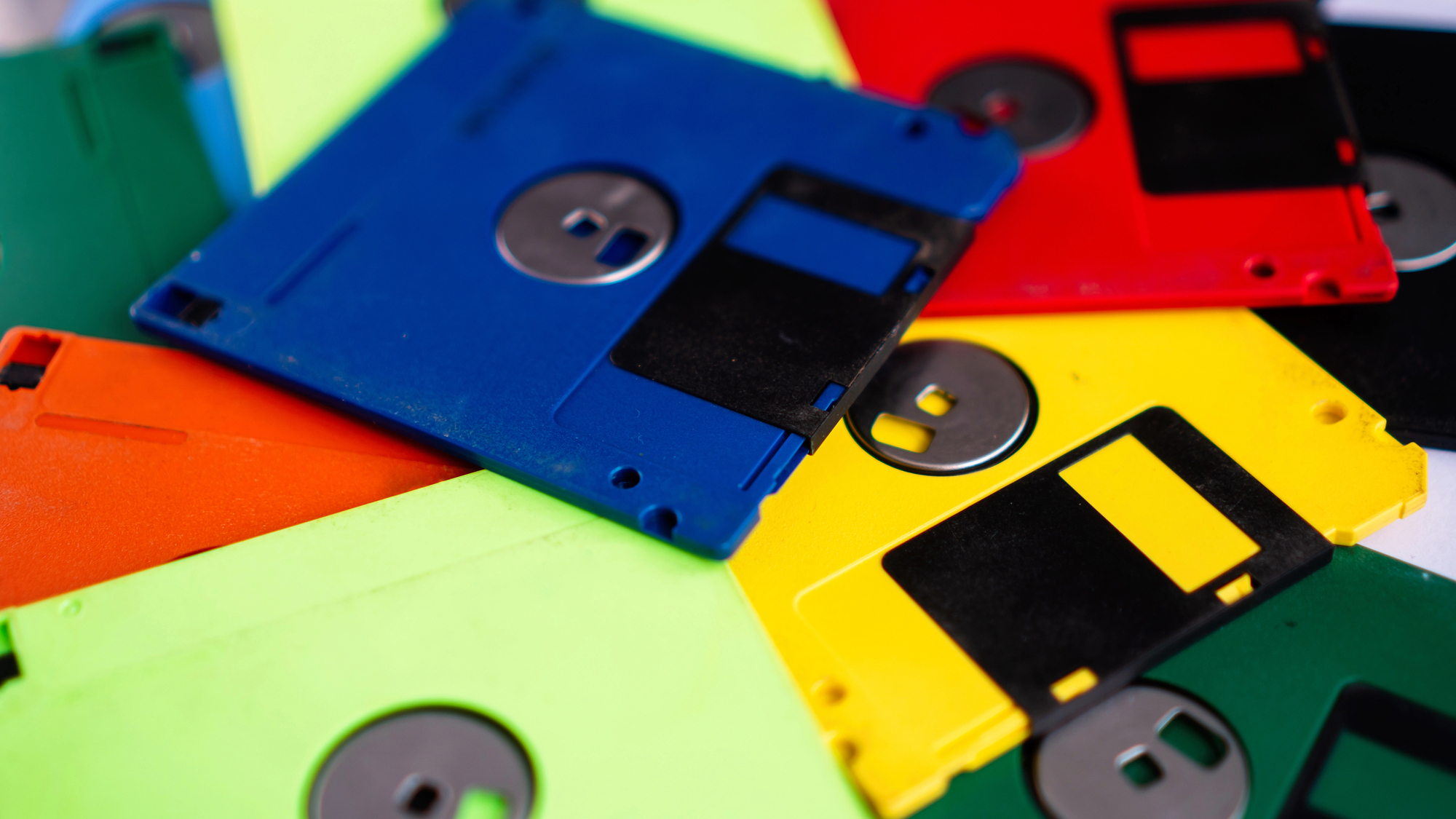
It’s a challenge just laying your hand on one in 2024. Sony was the last major manufacturer to cease production of 3.5″ floppies, and their production lines stopped running in 2011. DepositPhotos
Until 2019, the computer system that controlled the USA’s nuclear arsenal famously relied on eight-inch floppy disks, a format you probably have to be in your fifties to have ever laid eyes on. One would be forgiven for thinking that the phasing-out of that system might have been the last we’d hear of the floppy disk—but that’s not so.
Another country where floppies have remained in use is Japan, largely because of a suite of regulations that required documents submitted to the government to be sent on one of a variety of antiquated storage media. The country’s Minister for Digital Transformation, Taro Kono, “declared war” on floppies in August 2022—and now, two years later, he has declared victory in his crusade.
As Minister for Digital Transformation, Kono is responsible for Japan’s Digital Agency. This body was set up in the wake of the COVID pandemic and tasked with breaking down the hidebound bureaucracy and other structural factors that had hindered the digitalization of Japan’s administrative systems. In December 2021, Kono’s predecessor as Digital Minister Karen Makishima described the pandemic as a “wake-up call for Japan’s digital transformation,” and explained the Digital Agency’s establishment as a method for addressing the country’s “outdated and cumbersome administrative system.”
Kono took over the Digital Transformation portfolio from Makishima in August 2022, and quickly made the war on outdated technology a signature policy. It’s easy to see why floppy disk requirements became emblematic of this struggle: for a start, it’s a challenge just laying your hand on one in 2024. Sony was the last major manufacturer to cease production of 3.5″ floppies, and their production lines stopped running in 2011. And then there’s the question of capacity: of the various floppy formats readers might remember (specifically, 3.5″ disks and their larger 5.25″ cousins) the most generous format is the “high-density” 3.5″ disk, which accommodated just 1.44 MB of data. (The highest capacity 5.25″ disk topped out at 1.2MB.)
These figures sound absurd by today’s standards, although it’s worth noting that they remain feasible for accommodating text-only documents—a PDF version of Japan’s Act on the Advancement of Government Administration Processes That Use Information and Communications Technology is only 219KB. As soon as any sort of non-text media is involved, though, things change dramatically: a single screenshot of the first page of that same legislation occupies 2.3MB.
While that Act (generally referred to as the “Digital Procedures Act”) provides the overarching statutory framework for the Japanese governmental IT procedures, banishing requirements for the use of floppies and other outdated formats hasn’t proved as simple as just amending the Digital Procedures Act. As this presentation from August 2022 explains, if a law makes specific requirements for acceptable formats, these requirements arguably supersede the general provisions of the Digital Procedures Act—which meant that every existing law that required use of a specific format would need to be amended.
Kono thus tasked his Agency with carrying out a comprehensive review of Japan’s statute book to identify such provisions. The review turned up 1,894 of them: the majority (1,114) mandated the use of “magnetic disks”, while other stipulated formats included CD-ROM, “flexible disks”, and “light disks”. (There were also 81 requirements for the use of “magnetic tape.”) The process of making all the necessary amendments has been underway ever since.
A milestone came in January this year, when the country’s Ministry of Economy, Trade and Industry announced that it had done its bit, removing or amending 34 requirements for information to be stored or submitted on floppy disks. And now, according to Kono, the end is at hand: all the necessary amendments have been made, and he announced proudly to Reuters this week that “We … won the war on floppy disks on June 28!”
While Kono’s war is over, it’s unclear whether the humble floppy will ever really disappear. A surprisingly large number of technologies that appear hopelessly old-fashioned at first glance remain in use: the vast majority of banks still use systems written in COBOL, for example, while fax machines refuse to die. Meanwhile, other technologies that appeared dead and buried have since madecomebacks. Ultimately, the rationale for resisting change for change’s sake was summed up neatly by a Pentagon spokesperson back in 2016, when news first broke of the ongoing reliance of the USA’s nuclear command system on eight-inch floppies: “This system remains in use because, in short, it still works.”
>>> Read full article>>>
Copyright for syndicated content belongs to the linked Source : Popular Science – https://www.popsci.com/technology/floppy-disk-japan/